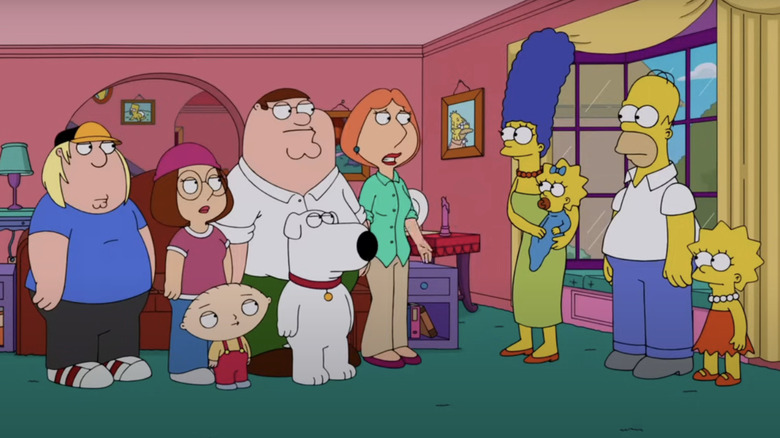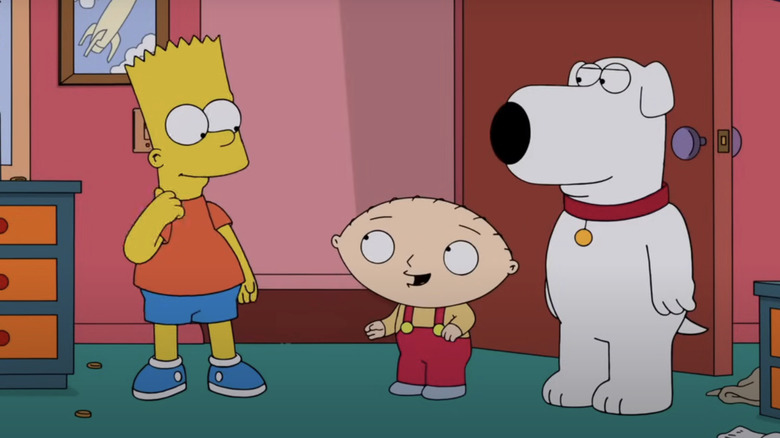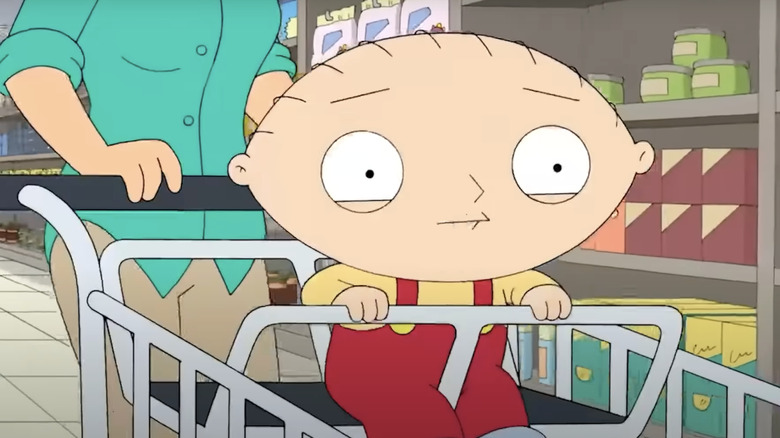We could obtain a fee on purchases comprised of hyperlinks.
It is not all that stunning that, in a greater than 30-year run, “The Simpsons” has undergone main transformations. When the collection debuted in 1989, it stoked the ire of conservative figures who have been dismayed by a present that appeared to have a good time dysfunctional households and featured a bratty child who was happy with his personal insubordination. The obvious instance was when President George W. Bush famously said in a 1992 speech that he needed American households to be “much more just like the Waltons and lots much less just like the Simpsons.”
However by the top of the ’90s, the Fox present had misplaced a few of its subversive edge, and never simply because it had slowly been subsumed by mainstream tradition. In 1999 — ten years after “The Simpsons” debuted, and on the very same community — “Household Man” arrived and was instantly extra brash, brazen, and prepared to go the place “The Simpsons” by no means did in pursuit of a joke. As former showrunner and author Mike Reiss wrote in his guide, “Springfield Confidential,” “I am a jaded, previous TV author, however that present someway manages to shock me on a weekly foundation. They do jokes about AIDS, abortion, and the Holocaust, subjects we have by no means touched.”
Alongside the equally surprising and unashamedly vulgar “South Park,” which debuted in 1997, “Household Man” made “The Simpsons” look tame. The previous scourge of the American proper had change into a reasonably benign characteristic of the popular culture panorama, and struggled to match the irreverence of its rivals. Now, 35 years after it first aired, it has change into that collection that’s someway nonetheless working however no person you recognize is watching it (although “The Simpsons” can nonetheless be good, at instances), whereas “South Park” and “Household Man” have adopted in its footsteps by turning into accepted into popular culture.
Which implies, moderately than feuding or attempting to outdo the opposite, the creators of those exhibits are actually free to easily chat it up and reminisce about their time on-air, which is precisely what “Simpsons” and “Household Man” creators, Matt Groening and Seth Macfarlane, did in a 2014 piece for Leisure Weekly, throughout which Groening even revealed which character he’d steal from his counterpart’s collection.
Matt Groening would steal Stewie and make him a Simpson
Although it has acquired its share of hate over time, “Household Man” has some undeniably basic episodes, and it appears Matt Groening likes the present sufficient to need to steal certainly one of its primary characters.
In 2014, “The Simpsons” and “Household Man” joined forces for a crossover episode, wherein Homer Simpson and Peter Griffin are seen persevering with a long-running “Household Man” gag, specifically the hen combat. This staple of the collection sees Peter and Ernie the hen partaking in drawn-out fist fights at random throughout the collection’ run. Within the Leisure Weekly interview, Groening was requested which of Seth Macfarlane’s characters he’d need to carry over to his present, to which he replied, “Nicely, I am actually jealous of the hen — the entire chicken-fight factor. However I assume Stewie. Simply comedy gold.”
Stewie, the one yr previous son of Peter and Lois, is among the finest characters on “Household Man,” and it is easy to see why Groening picked him — not that the speaking child with a violent streak would match into “The Simpsons.” Replying to Groening’s revelation, Macfarlane talked about how Stewie was impressed by actor Rex Harrison, who starred alongside Audrey Hepburn in “My Truthful Woman,” however that there’s additionally “a shred of Mr. Burns’ affect” within the character. Certainly, the “Household Man” creator mentioned that he would take Mr. Burns, Homer’s boss and the proprietor of Springfield’s nuclear energy plant, if he may steal any “Simpsons” character. “He was simply at all times a personality that acquired a pleasant massive chortle out of me when he emerged and all through his run,” Macfarlane added.
The Simpsons does not want Stewie
Throughout their EW dialogue, Seth Macfarlane remained complimentary of Matt Groening’s present all through, revealing that “[The Simpsons] redirected the course of the place [he] needed [his] skilled life to go.” Macfarlane recalled:
“I needed to be a Disney animator, after which ‘The Simpsons’ got here out, and in each approach — writing-wise, production-wise, timing-wise, animation-wise — it simply rewrote the rulebook.”
With that in thoughts, you get the sense that Groening was simply being good for the sake of the interview by claiming he would take Stewie. The “Simpsons” creator has spoken extensively concerning the inspirations for his present, and even cites a number of of these throughout his EW interview, together with the 1959 “Dennis the Menace” collection, which he says felt like a letdown because it was rather more tame than he’d hoped. In that sense, whereas Stewie in all probability appeals to the identical a part of Groening that needed Jay North’s Dennis to be the actual menace the present marketed, it is arduous to think about that he would actually take something from “Household Man,” which stays closely indebted to its predecessor.
It won’t be as enjoyable as watching the 2 collection feud over the airwaves — “The Simpsons” even stopped doing a sure type of joke as a result of “Household Man” stored copying it – however this type of reverence for one another’s exhibits is rather more heartening to see than accusations of plagiarism being thrown backwards and forwards. It is also bittersweet, as these sorts of pleasantries and the actual fact that “The Simpsons” did a crossover episode with “Household Man,” reminds us that each exhibits aren’t fairly what they as soon as have been.


